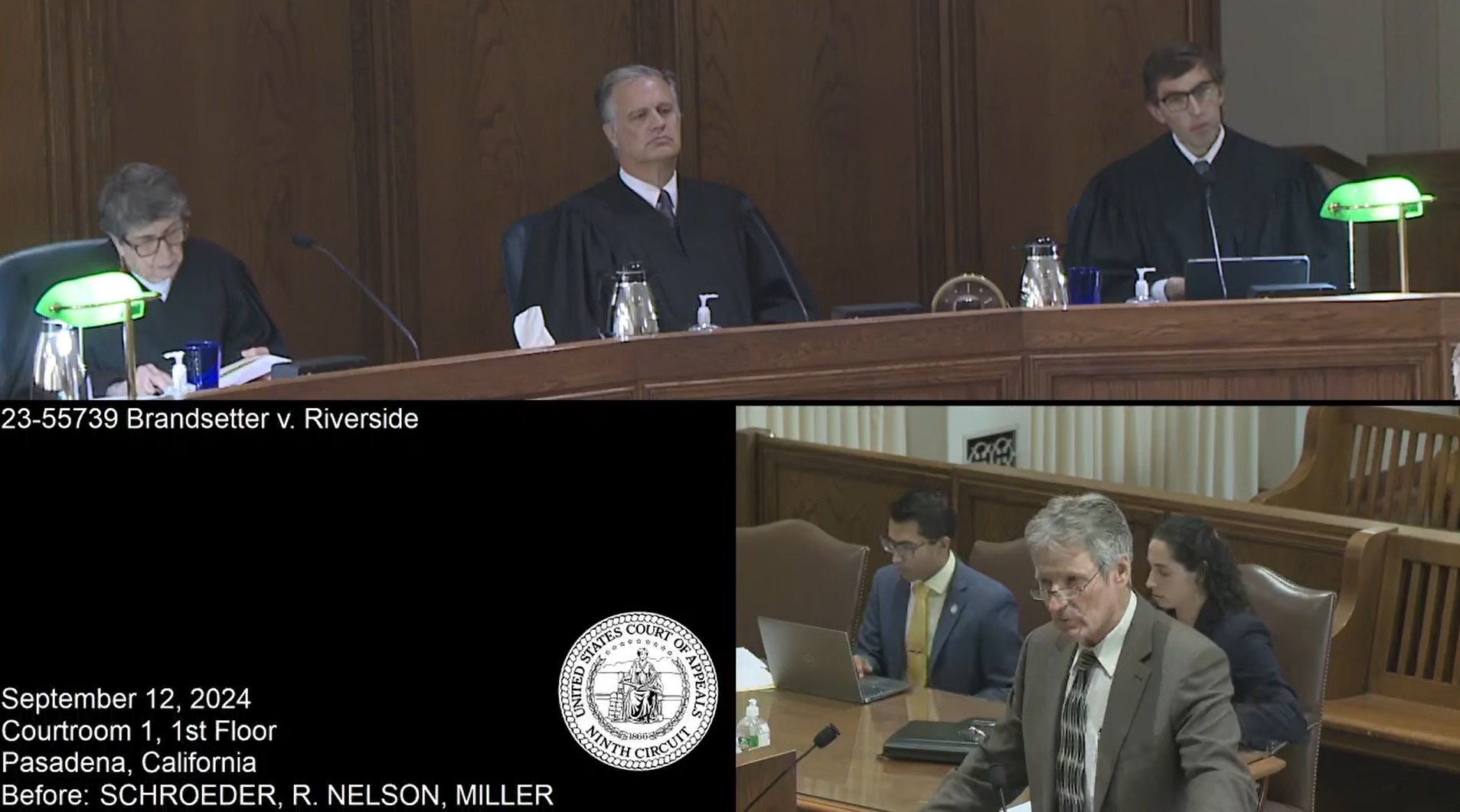John Brandstetter’s home was searched and his guns seized by Riverside police after he allowed a man with a warrant for his arrest to live there.
Brandstetter argues that the search warrant was illegally broad, and that the seizure of his weapons violated his rights to property and firearms.
His attorney, Donald Cook, argued his case Sept. 12 before the Ninth Circuit Court of Appeal, following a dismissal by California Central District Judge Fernando Aenlle-Rocha.
The circuit judge’s questions focused on the Second Amendment, and interrupted most of the attorneys’ prepared arguments.
Penal Code 33850, which became law in 2020, was central








